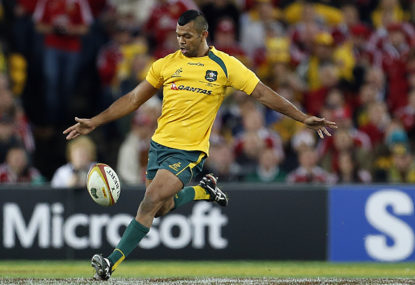'Run-on debut like no other': Junior Wallabies flyer announces himself to the world after stunning hat-trick
In 15 minutes, Tim Ryan didn’t just put a smile on Joe Schmidt’s face, he announced himself to the Australian public by scoring a…

The game of rugby has changed so much over the years. The game I played and the rules I played under in the 1960s only now resemble something like the modern game.
No longer do we play “coming ready or not” and plough as a formation of eight into the opposition when setting a scrum. No longer do we scrape, kick, or trample all over the player on the ground ensuring that he leaves with several marks down his back.
We now play a hybrid game of gridiron, rugby league and old school rugby with most of the mongrel removed.
The fifteen-man game is now one of 23 players yet media still persist by inferring that those players who are there for impact, to be inserted at the coach’s choosing, are somehow lesser players because they did not run on to the field at the start of the game.
These ‘bench players’ – as they persist in calling them – are an intricate part of the modern game and should not be made to feel that they are lesser players.
The impact players that join the play throughout the game are just as important as the run-on player. The inference that implies he is a lesser player than the man who starts the game because he joins the team after it has started should be treated with more respect by culling the words ‘bench player’ from the vocabulary.
In the coaches game plan each player has a specific job to do at a specific time and as seen in the All Black versus Wales game, 11 June 2016. It was the impact players that decided and provided the large win for the All Blacks. I watched number 23 run on with glowing pride.
Let us therefore all call them for what they are, ‘impact players’ and remove the stigma, differentiation and inferred second string run-on replacement that the ‘bench’ word implies.